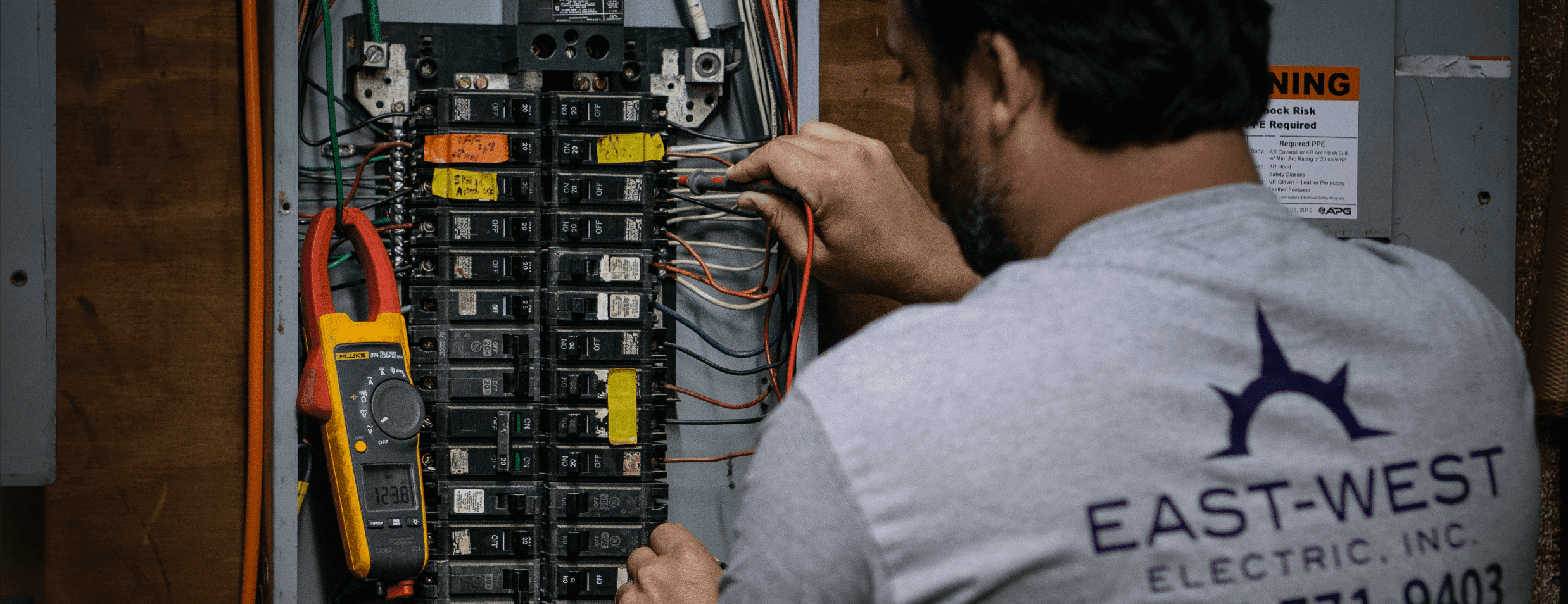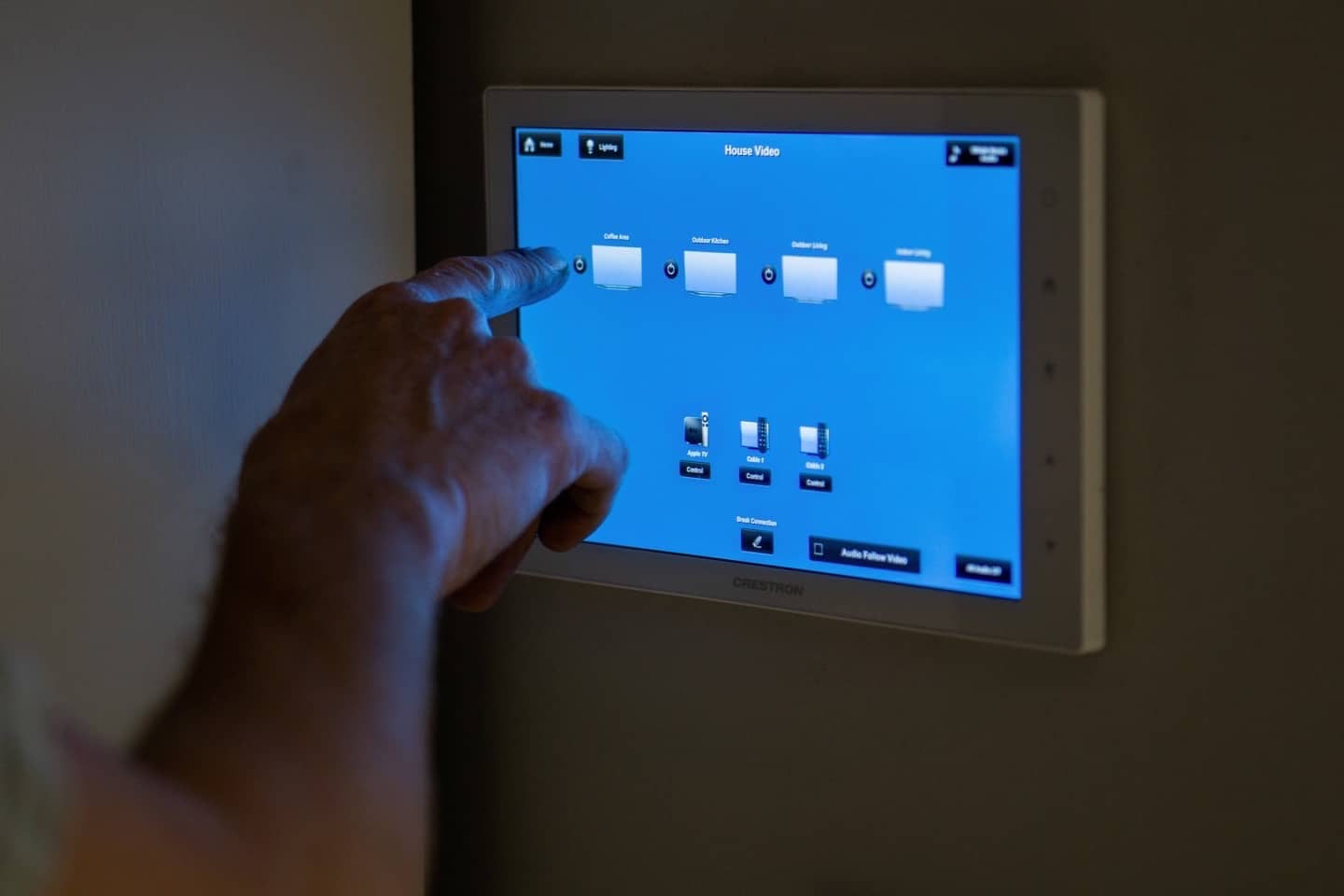Electrical Safety
Electrical safety should be a priority in any household. For parents of children of any age, making sure that they are safe is a never-ending job. This can be particularly hazardous in your own home, as it has many different hidden dangers that a small child or toddler can easily stumble upon. For instance, according to A Secure Life, 18,000 Americans die in their home every year, making it the second most common location for fatalities [source]. At East-West Electric we believe it is our duty to inform our customers of the dangers associated with poorly fitted electrical systems, and hope that our electrical safety tips are heeded.
Electrical Safety Statistics
As we mentioned above, 18,000 Americans die at home. But here are a few other stats in regards to electrical injuries that will further reinforce the need for strict safety measures taken by parents at home. [The U.S. Consumer Product Safety Commission has provided the stats].
- There are more than 400 electrocutions in the US every year
- Electrocutions from wiring hazards account for about 20% of these
- Electricity ranks 6th in occupational injuries per year
- Less than 200 people die annually from household electrocutions, which pre-GFCI (ground fault circuit interrupters) used to be 800 per annum.
- 25% of consumers are not aware of the purpose of GFCIs (more on that below).
- 50% of US families do not properly test their installed GFCIs frequently
- Electrocution is not the main cause of injury or fatalities when it comes to electrical hazards, rather electrical fires are.
Baby-Proofing Your Home
Childproofing your home when it comes to electrical systems is a must. From infants, toddlers, all the way up to even teenagers, the utmost precaution needs to be taken when it comes to electrical safety. For more foolproof methods of electrical safety look to the tips just below, but for now, we will just share a few simple tips that can be implemented without an experienced residential electrician. Read more on babyproofing your home.
Electrical Safety Tips For Kids
- Unused wall outlets or socket openings should be blocked. You can buy the plastic covers inexpensively at most home and hardware stores. These will initially prevent toddlers from being able to stick objects in the wall outlets, as they are difficult for them to remove. However, due to human error, you could easily forget to replace it after use, leaving the outlet exposed.
- Keep any electrical devices out of reach. Kids are curious and will grab almost anything within reach, which could result in serious injury.
- Be aware of wires that are within reach. Especially during the teething process, toddlers will chew almost anything. This can result in damage to any wiring that they get their hands (and mouth) on. Chewing on wires can result in severe electric shocks, which have caused fatalities.
- Be aware of any electrical components/devices that are located in places of frequent dampness. Electricity and water do not mix well, but these accidents do happen.
- Secure your television. It is quite easy for a toddler to pull down a television that is set on a small stand. Either wall mount it or if this isn’t available, you can purchase a TV anchor, which will secure it to the wall behind, or the table it is on.
Electric Shock Injuries In Children | What To Do
If the unthinkable happens and your child does receive an electric shock please follow these guidelines:
- Disconnect the power supply before attending to the child
- If there is a live wire on the child do not touch it with your bare hands, use a dry stick, rolled up newspaper, thick clothing, or another non-metallic object that does not conduct electricity
- Move the child as little as possible as internal injuries could have been sustained
- If you have to move the child, do not allow the current to pass through you as this could incapacitate you both. Treat the child the same as you would a live wire.
- Once removed call 911. Check for breathing, pulse, etc. You may need to perform CPR. For more information on this check out this article from healthychildren.org here.
Electrical Safety Tips At Home
There are more efficient ways of making your home safe when it comes to electricity. Here are a few points to consider when it comes to making your home as safe as possible:
Installation Of Tamper Proof Receptacles
Tamper Proof Receptacles or Tamper Resistant Outlets are specifically designed to prohibit entry into the socket unless both slots are activated at the same time. This would mean that for a wandering toddler who has the natural curiosity to stick objects (such as hairpins, keys, forks, knives, etc.) in slots, they would be unable to open the slots as both are interconnected spring-load shutters, preventing a potential electric shock in the process. Tamper Resistant Outlets are not that difficult to install, however, to ensure maximum safety precautions are taken we would advise contacting an experienced residential electrician in Clearwater, FL.
Installation Of Ground Fault Interrupters (GFI Receptacles)
A GFI (or GFCI as mentioned above) is a Ground Fault Interrupter. It works by comparing the current on the neutral side to the input current on the hot side. If there is a difference between the two this means that there is a current leaking somewhere, quite possibly through a human. When this anomaly is detected, usually within 20 milliseconds, the power is shut off quickly, which should result in minimal electrical damage inflicted on the person.
Installation of Arc Fault Circuit Breakers
Or Arc Fault Circuit Interrupters (AFCIs) is a product that detects arcing electrical faults to reduce the chance of a fire being ignited at the source. Electrical fires are one of the main causes of death and destruction when it comes to electrical hazards. AFCI works by using advanced electronic technology to monitor the circuit for the presence of normal and unusual arcing conditions. AFCIs can detect and distinguish the low-level hazardous arcing currents, preventing electrical fires before they even occur. The Arc Fault Circuit Interrupters are required by the National Electrical Code, but if you are unsure if your home or commercial facility abides by this code you can call us to come out and inspect your property.
Inspections For Damaged Wiring Or “Flying Splices”
One of the main causes of electrical fires is having exposed damaged wires or flying splices as they are referred to among electricians. This is where you have wires that are exposed in the open, allowing for sparks to occur and possibly ignite a fire in your home. You need to make sure that all live wires are either tied up safely or covered in junction boxes. To make sure that the job is taken care of properly, call a Clearwater residential electrician today, we can inspect your property and make a list of all electrical safety measures that need to be addressed.
Thermal Imaging To Look For Connections That Are Heating Up
Thermal imaging is a common method of detecting electrical faults in the wiring and other electrical components around your residential and commercial property. Abnormal heating and excessive current flow are one of the main causes of electrical hazards. As experienced electricians, we have the tools required in order to undertake a full electrical inspection of your property. We will be able to detect safety problems before they have occurred. Prior to electrical fires and other hazards, there are clues around wires and components that can tell us that all is not right. By detecting them early through thermal imaging we can save you a lot of money and distress. Don’t put your family at risk call us today at (727) 771-9403.
Electrical Safety Devices For Your Home
If you want to learn more about electrical safety devices for your home, read our article found here.
Electrical Safety Tips Provided By A Clearwater Electrician
Electrical safety should be a priority when it comes to protecting your family at home. At East-West Electric we pride ourselves on providing our community with the advice and information they need to stay safe. If you have any questions in regards to electrical safety concerns you might have at home just leave a comment below. You can also call us at (727) 771-9403 or submit our online contact form here and we will get back to you promptly.






